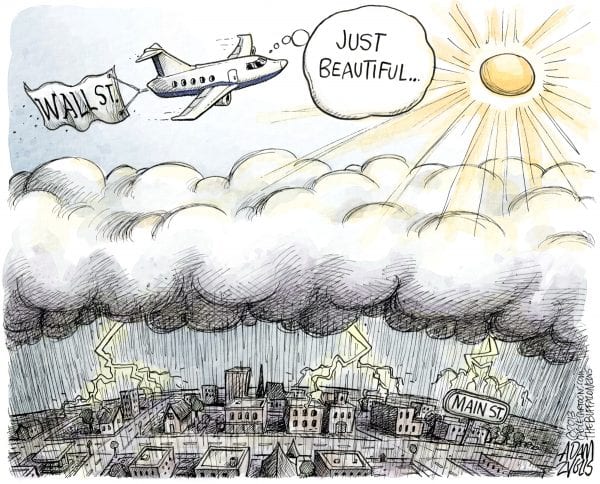BY DAVID PERRYMAN
 Retail entrepreneurs have coined enduring mottos designed to invigorate the people who work for them. For instance, Marshall Field was famous for directing his employees to “Give the lady what she wants” and reminding them that “The Customer is Always Right.” What Mr. Field and thousands of other successful CEOs knew was that while the “Customer was King,” the men and women that he employed were the most important asset that he had.
Retail entrepreneurs have coined enduring mottos designed to invigorate the people who work for them. For instance, Marshall Field was famous for directing his employees to “Give the lady what she wants” and reminding them that “The Customer is Always Right.” What Mr. Field and thousands of other successful CEOs knew was that while the “Customer was King,” the men and women that he employed were the most important asset that he had.
Richard Branson, the British entrepreneur who founded the more than 400 companies comprising the Virgin Group and whose net worth exceeds $5 billion, best captured the concept when he said, “Clients do not come first. If you take care of your employees, they will take care of the clients.”
This theme was not just British. For generations, the “partnership” between American business and its employees was strong and vibrant. The successful business model created “company men” and “company women” who in return for the security of employment and its benefits would contribute a lifetime of loyalty to their jobs.
Change came gradual. Whatever the reason, this era of massive pay gaps between executive salaries and other company employees is indicative of corporate America’s devaluation of its employees.
According to a January 2018 report from the Economic Policy Institute, the average CEO pay is 271 times the average pay of the typical American worker. The Institute compares that with 1978, when CEO earnings were roughly 30 times the typical worker’s salary.
Forbes Magazine in May 2018 reported that if we have any doubts about the disappearance of the American middle class, we need look no further than this pay-gap. That report stated that, “In the 1950’s, a typical CEO made 20 times the salary of his or her average worker and in 2017 CEO pay soared to an average of 361 times more than the average rank-and-file worker pay.”
According to Al Lewis of Market Watch, frustration is heightened through our realization that when a business goes bankrupt, receives taxpayer bailouts or pay millions in fines for fraud, the average golden parachute for “forced out CEOs” in 2013 was valued at $48 million, while average employees are left in the cold.
The economic damage does not stop there. In increasing quantities, corporate assets are allocated to lobbying and legislative influencing through an embedded process that undermines pensions, workers compensation and other special benefits that have historically provided retirees and disabled workers with a safety net to prevent them from retiring into poverty or having to rely on welfare after their bodies become worn out or injured in the service to their employers.
For instance, even though cases of black lung disease among miners was on the rise last year, a report in Roll Call published last week shows that coal companies and coal industry groups actively lobbied federal lawmakers against extending a program that has historically provided benefits for sufferers and their families.
According to mandatory financial disclosures, the coal lobby spends between $1.5 million and $2 million annually to influence legislation. A portion of that last year was spent seeking a 55% decrease in the tax that funds the Black Lung Disability Trust Fund. Legislators followed the industries direction and allowed the decrease to take effect despite the fact that since 1979, the fund has had to be supplemented nearly every year.
Consequently, coal companies receive another big tax break while afflicted employees and their families are left to seek other sources of revenue to meet health and medical expenses they face solely because of the occupation that they engaged in.
The situation is not foreign to Oklahoma where employees are suffering from similar treatment. Employers of tens of thousands of Oklahomans do not provide health insurance coverage and do not compensate their employers sufficiently to allow the employee to purchase health insurance.
Without access to insurance, affected employees involuntarily become recipients of uncompensated care; hospitals and ambulance services are required to provide services for which they will never be paid; and the rest of us are subsidizing those employers who are not paying wages to cover the cost of housing, food, education and medical care.
For the sake of protecting shareholder dividends and CEO salaries, uninsured employees are placing such a burden on Oklahoma’s health care providers that we may all lose health care access.
– Chickasha Democrat David Perryman represents District 56 in the Oklahoma House and serves as minority floor leader








